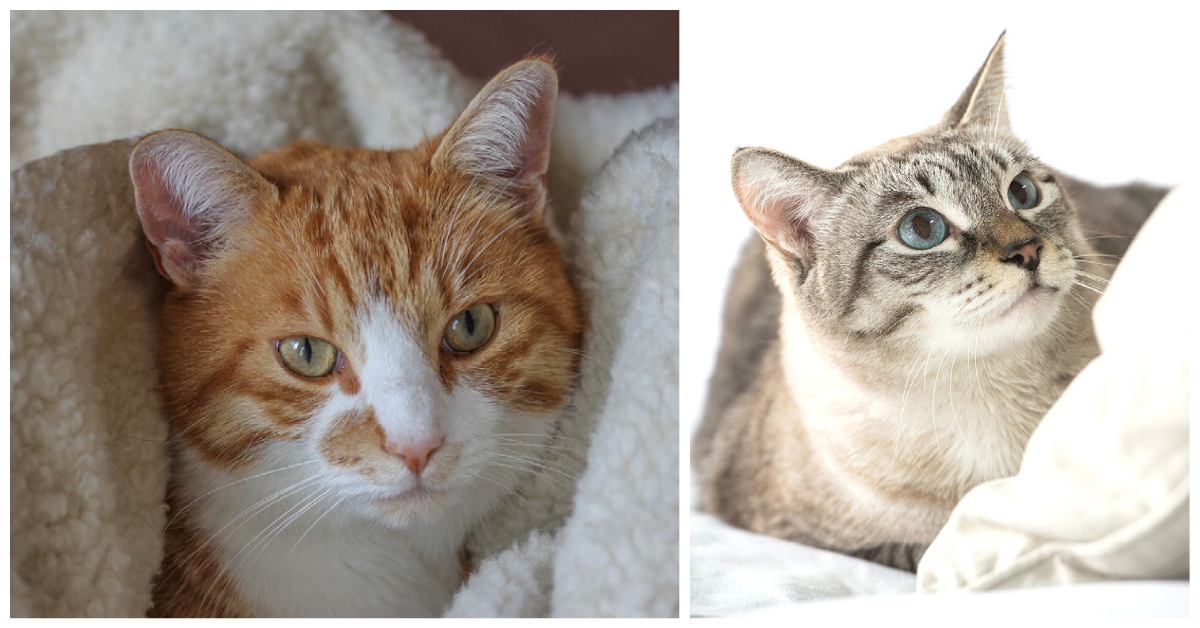Having cats sleep in bed with you seems cozy and appealing on a cold winter night. For people that love cats, having them sleep with you every night is often just assumed. A typical cat sleep schedule covers about 16 hours per day, so could they be good sleep companions at night?
The Centers for Disease Control and Prevention (CDC) estimates that around 50 percent of pet owners in the United States allow their pet to sleep in bed with them. Studies show that nearly two-thirds of owners sleep with their cats. According to veterinarian Dr. Steve Weinberg, allowing your feline friend in bed with you can potentially calm anxiety and night terrors.
While cats are very cuddly, their biological clock may cause some issues with their bed partners. “The downside is that cats are nocturnal animals,” he explains. “The human sleeper may have their sleep interrupted in the wee hours of the night or be woken up at a very early hour.” Due to this, Weinberg says, sleeping with a cat can be counterproductive to a person’s typical wake-sleep patterns.
“Many cats like to play and will scratch at or even bite at the human feet moving around under the covers,” he shares. To combat this issue, play with your cat before bedtime to get some energy out!

If you also plan to share your bed with another pet, such as a dog, keep in mind that your cat may not like this arrangement and become territorial. Something to think about if your cat won’t be the only one enjoying some quality time with you!
While you may enjoy the company of your cat in bed, never let your cat sleep with a child under 5-years-old and keep them out of a baby’s bedroom. Also, if you or your partner suffer from asthma or allergies, your cat shouldn’t be allowed in the bedroom at all.
Something else to consider if your cat spends part of the day outside, be mindful of what they could be exposed to— such as worms, fleas, ticks, and mosquitoes. Outdoor cats come into contact with more disease carriers than their exclusively indoor counterparts. “All of these carriers have the potential to transmit diseases such as viruses, bacteria, parasites, and many other infections,” says veterinarian Dr. Jennifer Maniet. “Also important to note is that the litter box of indoor cats can also present a risk of disease for humans in the household.” Gastrointestinal worms, giardiasis, ringworm, toxoplasmosis, and hantavirus infection are just a few diseases that kitty can bring in. Checking your cat’s fur and skin for issues and regularly taking your cat to the vet for their immunizations is very important.

“Always have your pet checked as directed by your veterinarian to determine your pet’s overall health status and to make sure they remain disease-free,” Maniet adds.
Fortunately, cat to human disease transmissions are extremely rare. As psychology professor Hal Herzog once shared via Psychology Today, “I expect the odds that you will contract the plague or meningitis from sleeping with your [pet] are somewhere between your chances of being killed by a shark (one in 4 million) and being struck by lightning (one in 80,000).”
In our family, we always had indoor cats and they were allowed to pick any bedroom they wanted. Let us know in the comments if your cat sleeps in bed with you at night.
As long as you and your fur-baby doesn’t have any medical issues, your cat can lay claim to your bed! For interesting cat videos, check out our CatFancast channel on YouTube !


